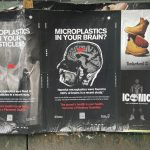Funding for the exploration of partial reprogramming in aging treatment surpasses that of all other approaches combined. This process involves exposing aged cells to Yamanaka factors, aiming to restore youthful epigenetic patterns without inducing pluripotency. While achieving this delicate balance presents challenges for widespread drug delivery, researchers are determined to push forward in their efforts. Recent studies have shown promising results with partial reprogramming, reversing cellular aging in both in vitro and in vivo models without fully reprogramming cells. These studies reveal enhancements in chromatin accessibility, improved mitochondrial activity, and modulation of key biological processes. However, the full extent of aging reversal through reprogramming remains to be fully understood. Context-specific effects and potential side effects of reprogramming protocols highlight the need for further research and understanding. Despite these challenges, partial reprogramming offers significant promise in addressing various aging biomarkers.
Link: Article Link





